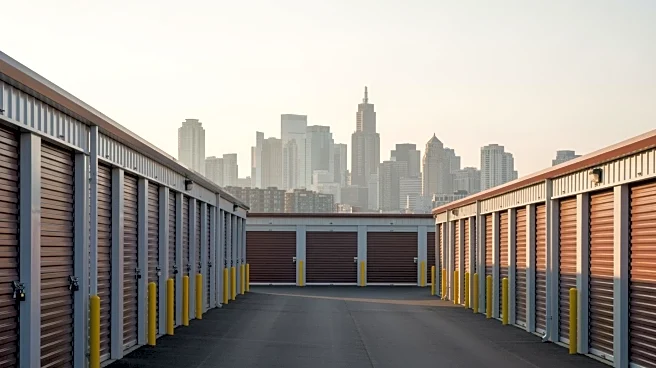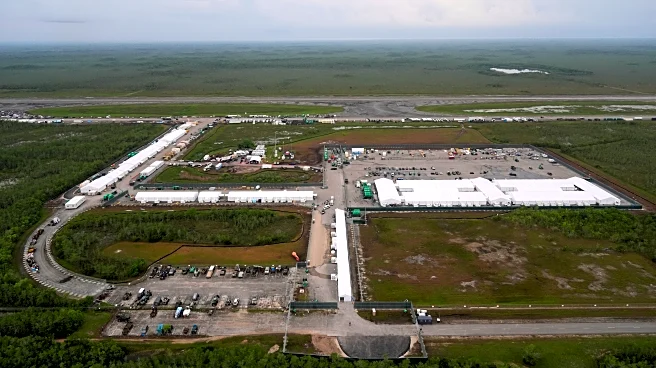What's Happening?
The United States self-storage market is anticipated to grow significantly, reaching USD 57.53 billion by 2030, according to a report by Mordor Intelligence. This growth is driven by urban migration and the increasing limitations on living space in major
cities. The market, which generated USD 45.41 billion in 2025, is advancing at a compound annual growth rate (CAGR) of 4.85%. Key factors contributing to this expansion include rising residential mobility, the growing reliance on e-commerce, and the integration of storage solutions into business operations. As urban populations increase and living spaces shrink, households are increasingly turning to off-site storage solutions. Additionally, self-storage units are being utilized as micro-fulfillment centers for e-commerce and small businesses, enhancing delivery and inventory management.
Why It's Important?
The growth of the self-storage market reflects broader trends in urbanization and lifestyle changes in the United States. As cities expand and living spaces become more constrained, the demand for convenient and secure storage solutions is rising. This trend is significant for businesses, particularly those involved in e-commerce, as it offers improved logistics and inventory management capabilities. The market's expansion also indicates a shift in consumer behavior towards more flexible living arrangements, which could impact real estate and urban planning. Stakeholders, including facility owners, operators, and investors, must understand these trends to capitalize on the market's potential and adapt to changing consumer needs.
What's Next?
The self-storage market is expected to continue evolving with technological advancements, such as online booking and AI-driven management systems, enhancing efficiency and customer experience. As demand grows, particularly in high-density urban areas, stakeholders may focus on expanding capacity through digital innovations and converting vacant properties. The integration of climate-controlled units and advanced security features will likely become more prevalent, catering to diverse consumer needs. Additionally, the market may see increased competition among key players, prompting further innovation and service diversification.
Beyond the Headlines
The expansion of the self-storage market may have deeper implications for urban development and environmental sustainability. As more properties are converted into storage facilities, there could be impacts on land use and zoning regulations. Furthermore, the rise in e-commerce-related storage solutions highlights the need for efficient logistics systems, which could drive advancements in transportation and delivery technologies. The market's growth also underscores the importance of addressing environmental concerns, such as energy consumption and waste management, associated with large-scale storage operations.















